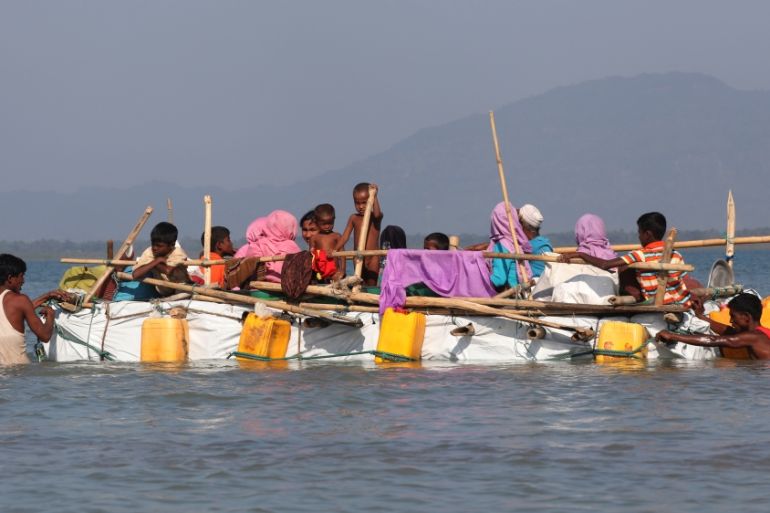Rabbis petition against Israel in support of Rohingya
Israel is among top weapons suppliers to Myanmar, which is brutally cracking down on Muslim-majority Rohingya.

Amid a brutal campaign against Muslim-majority Rohingya in Myanmar, Rabbi Dov Peretz Elkins did something he had never done before, signing a petition against the Israeli government to end arms supplies to the Myanmar military.
“Rabbis have a moral obligation to make their voice heard in such moral situations,” Elkins, who holds Israeli and American citizenship, told Al Jazeera from Jerusalem.
Keep reading
list of 4 itemsConflict, climate, corruption drive Southeast Asia people trafficking: UN
Bodies of three Rohingya found as Indonesia ends rescue for capsized boat
How is renewed violence in Myanmar affecting the Rohingya?
More than 620,000 Rohingya have fled Myanmar’s western Rakhine State in recent months amid a crackdown by the Myanmar military, in a campaign of what the United States and United Nations have called “ethnic cleansing”.
The petition from T’ruah: The Rabbinic Call for Human Rights, a Jewish human rights organisation, calls on the Israeli and US governments to stop supplying arms to Myanmar’s government. Israel is among the top weapons suppliers to Myanmar.
“As American citizens and as Jews, we refuse to accept any involvement by the US or Israel in training or arming a military that is carrying out a brutal ethnic cleansing against a minority population,” the petition reads.
Hundreds of rabbis have signed.
“A lot of us feel powerless to do something in the face of what is happening,” Rabbi Rachel Kahn-Trosterso, a director at T’ruah, told Al Jazeera. “So the opportunity to be part of this coalition and following a rabbinic moral voice to speak out was very important to us.”
Pushing for change
A number of groups have recently formed to advocate for the Rohingya, including the Jewish Alliance of Concern Over Burma (JACOB), founded jointly by Rabbi Simkha Weintraub and Adem Carroll, who is Muslim. Their work involves raising awareness and pushing for policy changes.
“Because the Rohingya have so few members in the US, they really need to have their voice be heard here,” Carroll told Al Jazeera.

Maha Elgenaidi, the founder of the Islamic Networks Group, a US non-profit focused on interfaith engagement, said it was “heartening” to see members of the Jewish community stand up for the Rohingya. She has worked on improving Jewish-Muslim relations for the past 15 years, and noted that the solidarity between the two communities has been gradually building and strengthened further after the last US election.
“Both communities suddenly became very vulnerable,” Elgenaidi told Al Jazeera. “And there’s been an awareness of our shared heritage, our shared beliefs, our similar practices, as well as awareness of shared vulnerabilities as two of the largest religious minorities in the country.”
Both Carroll and Weintraub say they have not faced any resistance from either community for the work they have been doing in support of the Rohingya.
“We’ve let Rwanda happen, and we’ve let Cambodia happen, we’ve let Armenia – and who knows how many horrible things – happen. But now, we’re in a different place in terms of consciousness, communication and awareness,” Weintraub said.
“There is no pope – no one leader either in the Muslim world or in the Jewish world who says what is the order of things, so we’re all finding our own way.”